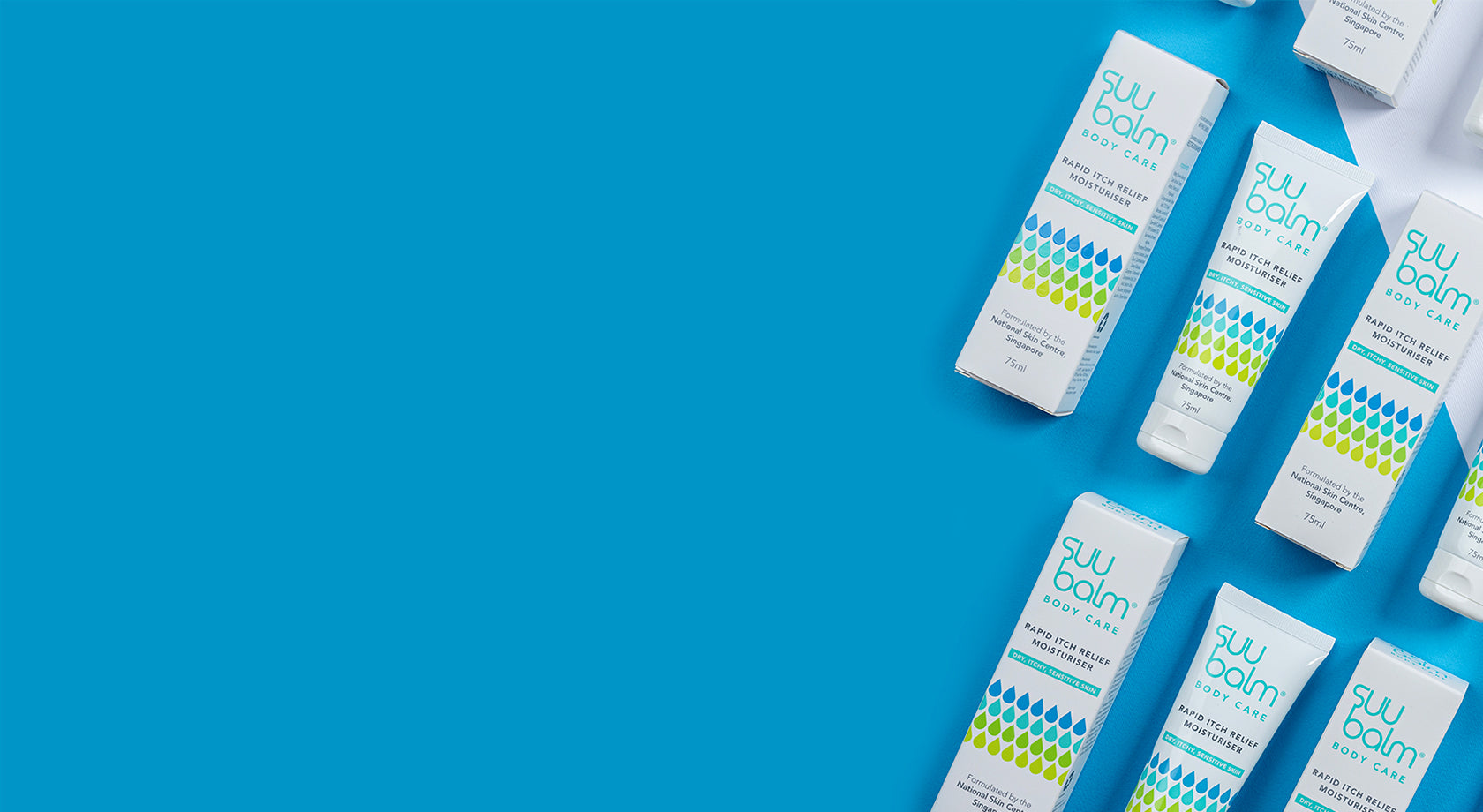Just last month, the haze situation in Singapore affected thousands of people. Everyone was falling sick! The haze aggravated existing conditions such asthma and coughs and gave an rise in people falling sick. We sat down with Dr John O’Shea, co-founder of pharmaceutical company Good Pharma Dermatology which formulates and sells Suu Balm, and asked him if the haze has any effect on those with skin conditions such as eczema.
How has the haze affected people who suffer from eczema?
First of all let us remind ourselves what the haze is – it is the smoke and particles produced by burning of wood and vegetation, so it is related to the pollution produced by burning coal or oil in our power plants, cars, trucks etc. It is now increasingly recognised that environmental pollutants (including particulate matter and nitrogen dioxide, two components of haze) increase the risk of development and/or aggravation of eczema, which follows the effect seen in asthma, another disease in the “atopic triad” of eczema, asthma and hay-fever.
So, with this prolonged haze affecting Singapore we can expect to see an increase in consultations with doctors and pharmacists about eczema flare ups. At Suu Balm we have seen demand for our product range, which is for people with eczema prone and sensitive skin, jump in the past week – we’ve had an increase of 31% in sales in the second week of September compared with the first week.
Why do haze conditions affect people who suffer from dry skin conditions like eczema?
The reasons behind this are complex. Firstly, people with eczema and chronic dry skin have a defective skin barrier – this means that the outer layer of the skin, which normally protects our insides from environmental pollutants, is more porous than it should be, so these pollutants can penetrate the skin, where they trigger a reaction from the body’s immune system. We can use ceramide creams to help repair this barrier, and Suu Balm creams contain skin-identical ceramides to achieve this.
People with eczema also have an “over-reactive” immune system, which when triggered produces the red, intensely itchy, flaky rash that is characteristic of the condition. Finally, the components of haze, like nitrogen dioxide and particulate matter more than likely exert their own effects, which further disrupt the functioning of the skin barrier and the immune system.
In your experience, how bad can someone’s eczema flare up get during prolonged haze conditions?
It can be very bad, very severe. This does depend on the extent and severity of the individual’s eczema, and other factors, but pollution can trigger bad flare ups of eczema. I think it is worth noting that any flare up of eczema is bad for that individual – the major symptom of eczema is itch, which keeps people awake at night and is psychologically very tormenting, not to mention that the scratching of the itch further damages the skin and perpetuates the flare up. This is true for a person with mild eczema suffering a flare up, as well as those with more severe eczema.
Again the good news is we can help with the itch, Suu Balm creams contain menthol which stops the itch within a few minutes, so are very helpful for managing this most distressing of symptoms.
What can people who suffer from eczema do to cope with the haze?
Ideally, get on a plane and get away from the haze! However, in practical terms few of us are able to do this. So the strategy to cope with the haze should have several components:
1. Limit exposure: this might be staying indoors, using an air filter at home, avoiding prolonged periods outdoors.
2. Protect the skin: given people with eczema and chronic dryness have an impaired skin barrier, they need to use a moisturising cream that can help repair this skin barrier; one ingredient stands out for this, and that is ceramide – ceramide is normally present in the skin, and is a key ingredient of the glue that helps to hold the cells of the outer skin layer together to create a water-tight seal, but in eczema and chronic dryness they are depleted; we use skin-identical ceramides in our Suu Balm creams to help restore the skin barrier to a tight, fully functioning seal.
3. If the eczema is flaring up, don’t waste any time getting it under control! Go see your doctor and discuss if you need any prescription creams; start moisturising very regularly, up to 5 times a day is best, with a ceramide containing cream; and get control of the itch, so as to stop scratching; the menthol in Suu Balm works within minutes to stop you itching and scratching.







